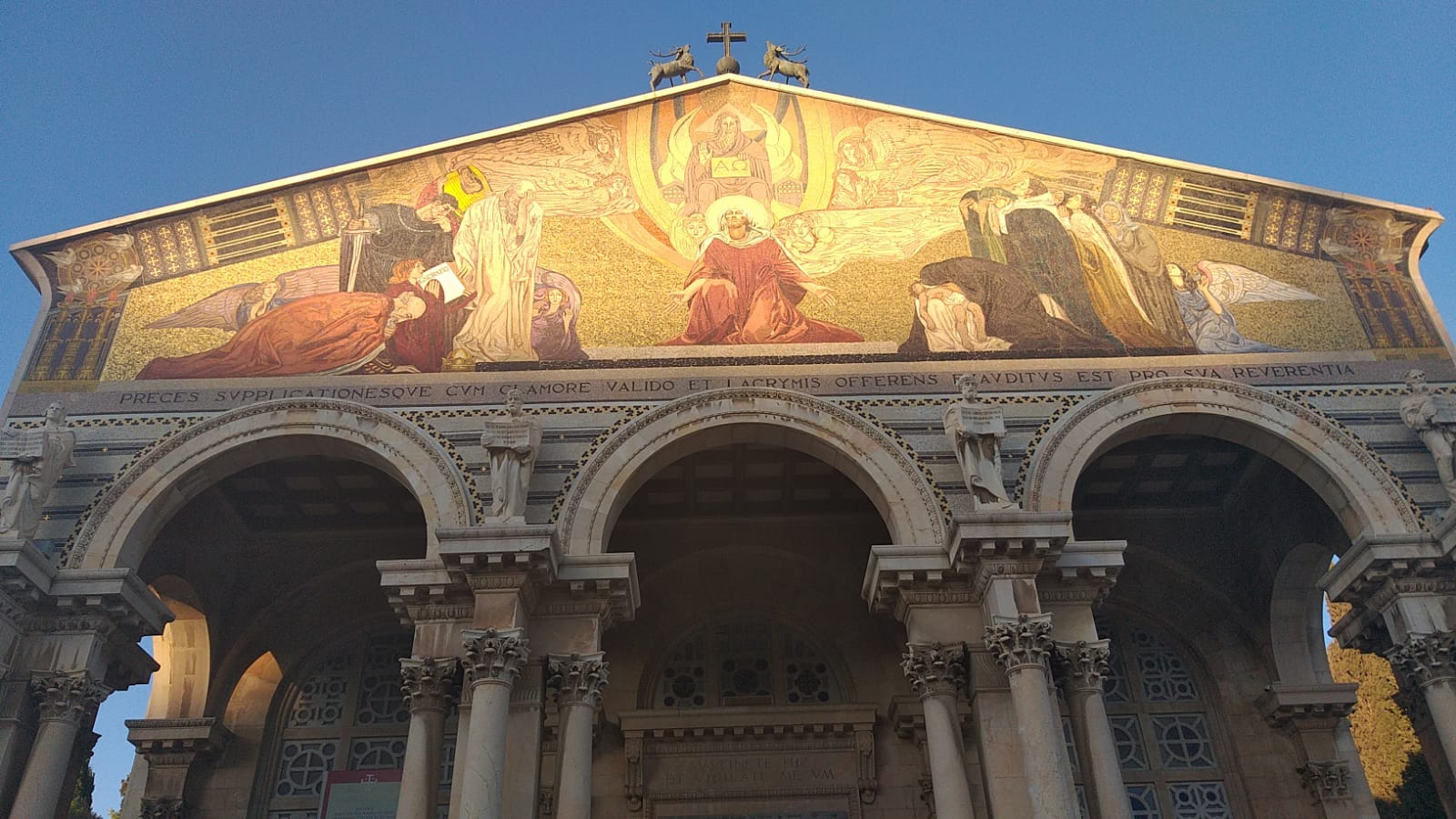Also by Rabbi Joshua Stanton
You are standing in Bethlehem’s Manger Square, the Church of the Nativity looms before you, and you feel like the kid in the Disneyland commercial who says, “I’ve been waiting my whole life to see you.” You are a Christian leader standing in the Western Wall Plaza and discover that you now understand more fully how and why so many Jews attach so deeply to this one spot in particular and to Israel in general, even as you also discover that you, as a Christian, may still feel fully welcomed and at home in that same place.
That is the reported experience of so many of the Divinity Students and Ministers who just completed an eight-day Stand and See digital pilgrimage to Israel/The Holy Land. Despite the physical distance, they kept explaining that they were really there and that this was what they really needed, both personally and professionally, both spiritually and intellectually. What did they mean?
These rising Christian leaders shared openly of their exhaustion after nearly a year-and-a-half of leading communities amid a global pandemic and political upheaval. They shed tears and praised God for the first experience in months or even years, that had centered them, widened their perspective, given them hope, and provided tools they need to serve and lead with greater passion and openness.
Even journeying online from home, they felt far from their day-to-day responsibilities and the recurrent stress of their callings, and yet they were readily able to connect their experiences to the biggest challenges and opportunities of this moment in American religious leadership. They felt the warmth of fellowship that transcended denominations and ideologies. They felt intellectually stretched even as they felt built up in their faith. With support, they opened wide their eyes to see the myriad links between the Christian stories that animated their lives, and the physical places where they took place. They appreciated the realities of Israel as a real, beautiful, imperfect, potential-filled place.
All that happened precisely because a Stand and See pilgrimage embraces that even more than any one conclusion about the big issues of the day, we need spirit-led leaders who know and live the spirit of both real answers and eternal questions. And at least as much, it happened because we create pilgrimages that are as much about the pilgrims as they are about the places they visit.
In addition to opening hearts and minds to the beautiful complexity of the Holy Land, serving the servants is at the center of what we do with the Stand and See Fellowship. We care for them so that they can serve others with fuller hearts and an awareness of complexity in a world filled with simplistic narratives.
In reconnecting with the holy stories that animated their faith, those on pilgrimage could reconnect with their own, as well. In hearing sacred words, they could reencounter the words, memories, and experiences that had defined their lives. They could finally hear themselves — and see the ways in which their lives brought life to their religious tradition itself.
The servant leaders departed on this digital journey depleted. They returned with faith in themselves and their higher purpose in life. They returned better prepared to lead with passion and compassion, and for a wider range of people than many originally appreciated. They returned excited not only to “win” the many theological, political, and communal debates that are part of their work but also to listen and learn, not only to that with which they already agree.
We gave them the care that they needed, they trusted that our task was not to convince them, their hearts and minds opened, and they came to understand how life-giving the Holy Land can be for people of faith, even when they encounter it from afar.
By Rabbi Brad Hirschfield and Rabbi Joshua Stanton
Photo by Sakher Rizkalla

Listed for many years in Newsweek as one of America’s “50 Most Influential Rabbis” and recognized as one of our nation’s leading “Preachers and Teachers,” by Beliefnet.com, Rabbi Brad Hirschfield serves as the President of Clal–The National Jewish Center for Learning and Leadership, a training institute, think tank, and resource center nurturing religious and intellectual pluralism within the Jewish community, and the wider world, preparing people to meet the biggest challenges we face in our increasingly polarized world.
An ordained Orthodox rabbi who studied for his PhD and taught at The Jewish Theological Seminary, he has also taught the University of Pennsylvania, where he directs an ongoing seminar, and American Jewish University. Rabbi Brad regularly teaches and consults for the US Army and United States Department of Defense, religious organizations — Jewish and Christian — including United Seminary (Methodist), Yeshivat Chovevei Torah (Modern Orthodox) Luther Seminary (Lutheran), and The Jewish Theological Seminary (Conservative) — civic organizations including No Labels, Odyssey Impact, and The Aspen Institute, numerous Jewish Federations, and a variety of communal and family foundations.
Hirschfield is the author and editor of numerous books, including You Don’t Have To Be Wrong For Me To Be Right: Finding Faith Without Fanaticism, writes a column for Religion News Service, and appears regularly on TV and radio in outlets ranging from The Washington Post to Fox News Channel. He is also the founder of the Stand and See Fellowship, which brings hundreds of Christian religious leaders to Israel, preparing them to address the increasing polarization around Middle East issues — and really all currently polarizing issues at home and abroad — with six words, “It’s more complicated than we know.”

